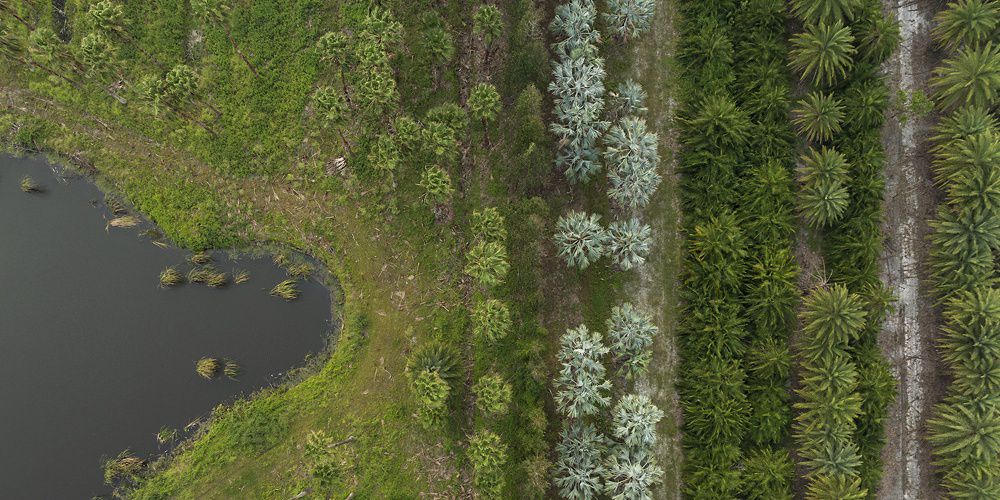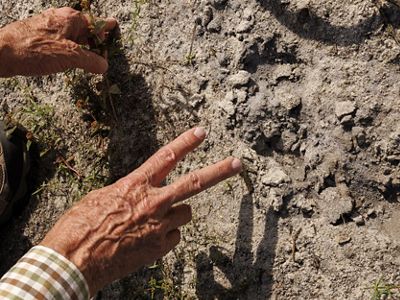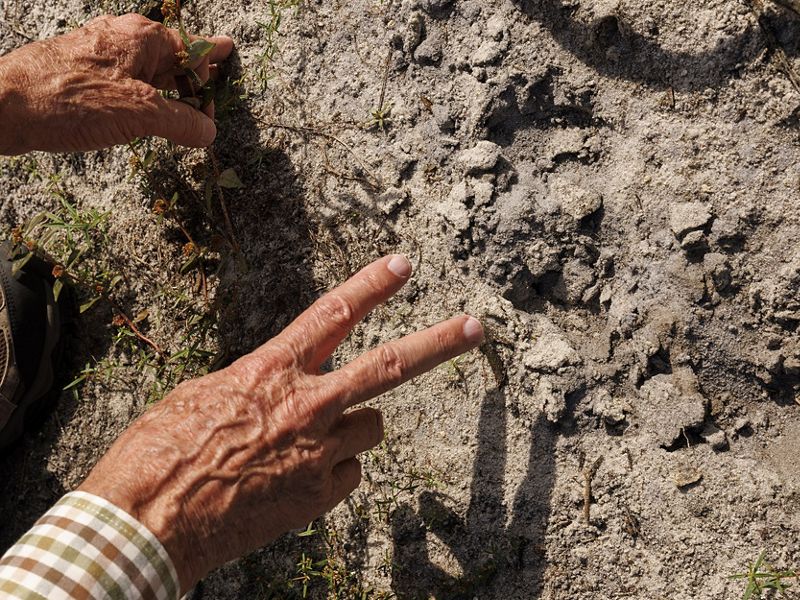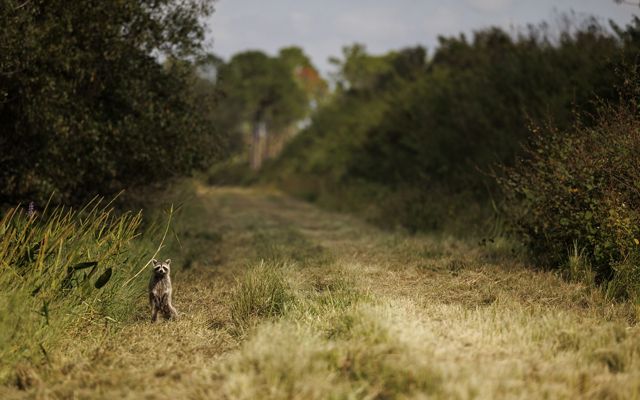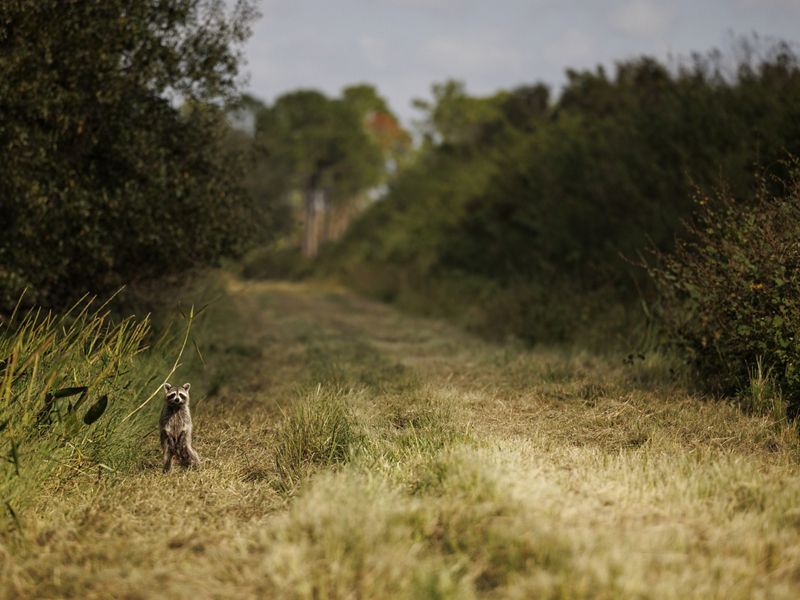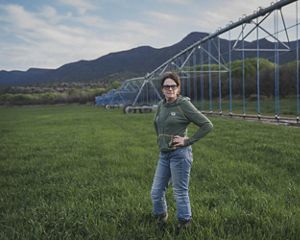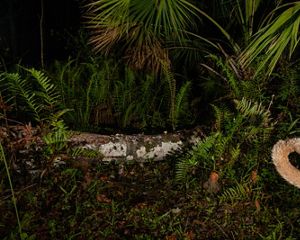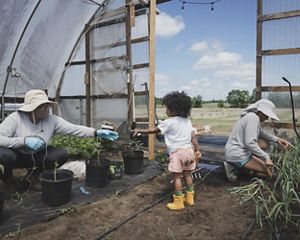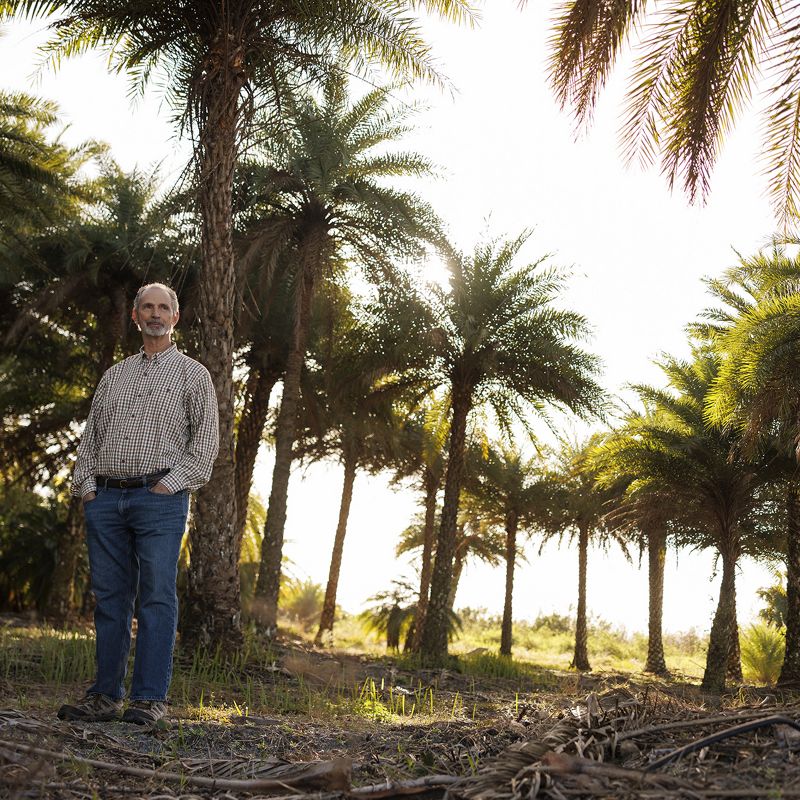
For this Florida Farmer, Panthers are a Secret Weapon Against Feral Hogs
Farm Bill funding is helping landowners protect panther habitat.
Farmer and businessman George Winslow, of Punta Gorda, Fla. is used to the highs and lows of his industry. “I am dealt a new hand of cards every day,” he says. One of the cards Winslow regularly confronts are feral hogs. “They cause a lot of problems.”
These shaggy porkers, the ancestors of escaped domestic pigs, are a menace to Florida’s agricultural and natural lands. The pigs gobble down just about anything in their paths: crops, tree seedlings, even birds and baby deer. On Winslow’s properties, their presence can be seen in trampled vegetation and plowed-up dirt. He’s even caught them standing on their hind legs to eat oranges straight from the tree.
Feral pigs have smarts to match their appetites, making them adept at evading hunters and traps. But there’s one hunter who’s specialized in pursuing wary prey, and who’s on the job 24/7: the Florida panther.
These panthers, a unique population of mountain lion, are a farmer’s secret weapon in the war on invasive pigs. But there are only about 200 of the tawny predators left in Florida. With most of the cats’ former and current range under private ownerships, landowners are crucial to efforts to restore their numbers.
Winslow is one landowner who has heeded the panthers’ yowl for help. And he’s done it with an assist from the Farm Bill, a piece of federal legislation that helps landowners protect habitat for endangered species and other wildlife.
Sign up for Nature News.
Sign up to Receive Updates about TNC's Conservation Work around the World.
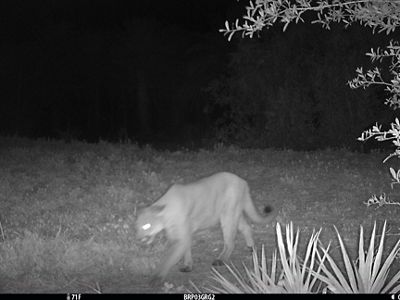
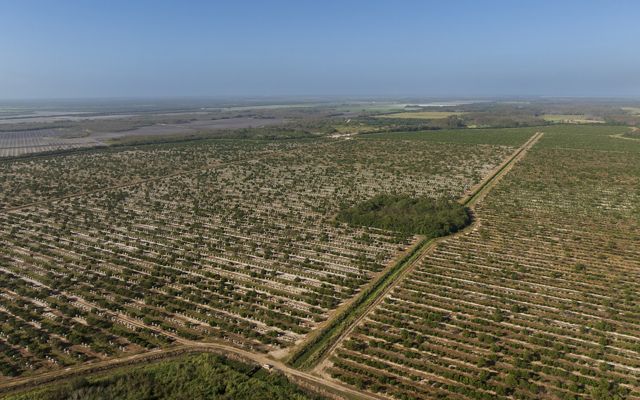

What is the Farm Bill?
Although little-known outside of agricultural circles, the Farm Bill is one of the most important pieces of legislation in the United States.
The bill funds a vast array of agricultural programs, from crop subsidies to nutrition assistance. It’s the nation’s single biggest investment in the conservation, restoration and management of private land, providing an average of $6 billion annually for conservation efforts.
The bill supports work that improves soil, water and habitat health over millions of acres of farms, ranches, forests and grasslands.
Learn more here.
Florida panthers are squeezed by development and roads
Winslow has been a farmer since he was seven, when “my dad put me on a tractor all by myself” on his family’s North Carolina farm, he says. He later moved to Florida, where he now owns more than 2,000 acres of agricultural properties in Charlotte and Hendry counties
One of those properties, G Road Grove, is home not only to citrus orchards but to panthers. Workers have caught glimpses of panther kittens, and trail cams have captured footage of adults, indicating that there’s plenty of prey and habitat. G Road Grove is situated at the southern end of the Florida Panther Dispersal Zone, a 30,000-acre corridor that aims to link the panthers’ current population in areas south of the Caloosahatchee River to suitable habitat to the north.
Panther habitat and agricultural land are both losing out to Florida’s breakneck growth. Nearly 1,000 people move to the Sunshine State every day. In southwest Florida, suburban sprawl is rapidly dicing up the panther’s range into ever-smaller pieces. At the same time, the proliferation of roads has been catastrophic for panthers. Automobile collisions are responsible for the vast majority of panther deaths.
The Life of an Orange Grove
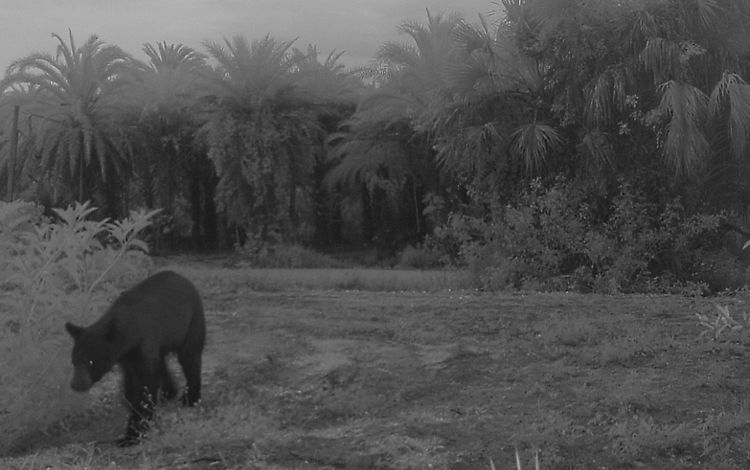
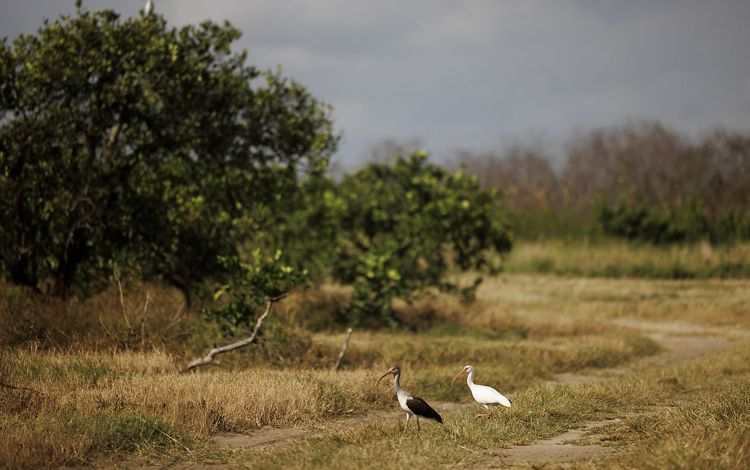
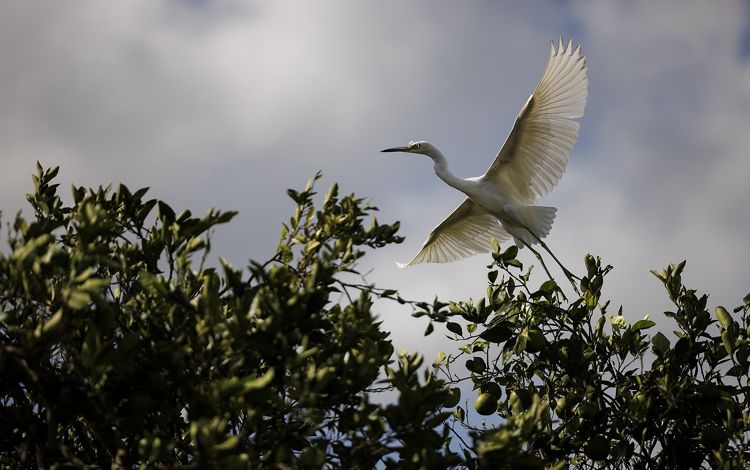

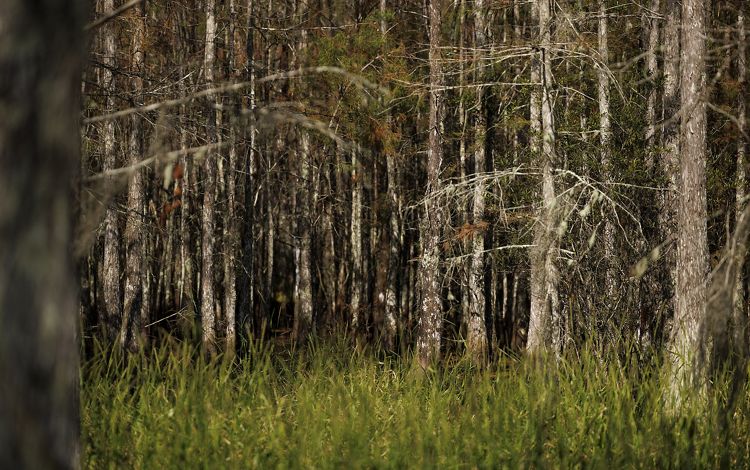
How an interest in panthers set a landowner down a path of conservation
Winslow became interested in the panther’s dispersal zone around 2007, and began looking for habitat conservation programs that would be suitable for his land. He had talks with the U.S. Fish and Wildlife Service, but the agency would have required him to return the entire farm to native vegetation, which Winslow wasn’t keen to do.
At the end of one meeting, a USFWS staffer pulled Winslow aside and told him that panther conservation was not at odds with keeping G Road Grove a working farm. “An orange grove is a literal buffet table for the Florida panther,” the staffer noted, explaining that fertile fields and fallen fruit attract pigs, rabbits and deer, which in turn attract their predators.
This comment planted a seed in Winslow’s mind. His research into other programs eventually lead him to Wendy Mathews, the senior conservation projects manager for The Nature Conservancy in Florida.
Mathews realized that Winslow’s land would be an ideal candidate for the Agricultural Conservation Easement Program, a voluntary federal program that allows landowners to permanently protect their farms, ranches and forests from commercial and residential development. ACEP is managed by the Natural Resources Conservation Service, an agency within the U.S. Department of Agriculture, and is funded by the Farm Bill.
After several years of planning, surveys and negotiations, the conservation easement was finalized in April 2024. ACEP funded half of the cost of the easement purchase, while The Nature Conservancy paid for the remainder. G Road Grove joins several other nearby working agricultural lands in the panther’s dispersal corridor that also have conservation easements.
Conservation easements mean a future for farmers and panthers
Like many farmers, Winslow is concerned about the future of agriculture in Florida. The county 70 miles to the north of G Road Grove is one of the fastest growing counties in the United States, while the closest town, LaBelle, is also expanding rapidly. While the owners of neighboring farms have expressed interest in easements, Winslow says, most seem to be leaning more in the direction of development.
As for Winslow, he’s glad to be doing his part to protect the panther. For farmers, “there are days that are very, very challenging, and some times that are rewarding,” he says. “And I think one of those times was actually meeting Wendy Mathews and discussing the possibility of a conservation easement.”
Not to mention the practical benefits of protecting big cat habitat: a few more feline farmhands helping to keep the pig problem under control.
Quote: George Winslow
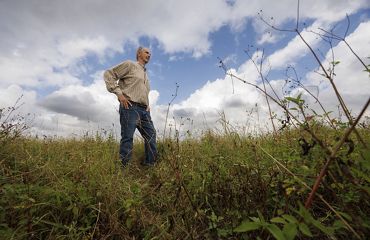
“There are days that are very, very challenging, and some times that are rewarding. And I think one of those times was actually meeting Wendy Mathews and discussing the possibility of a conservation easement.”
Support Farm Bill Conservation Programs
The Farm Bill offers a critical lifeline to farmers, ranchers and landowners who want to better conserve and manage their lands. Tell Congress: Pass a Farm Bill that supports conservation.
